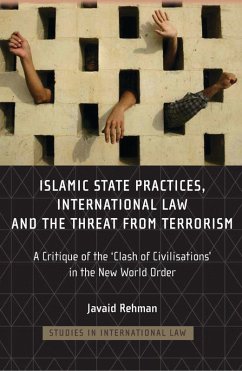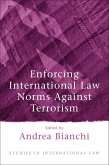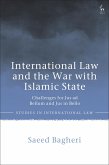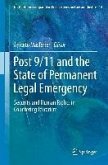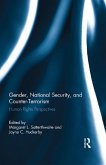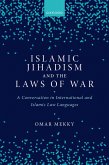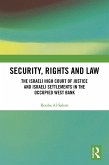In the post '9/11' legal and political environment, Islam and Muslims have been associated with terrorism. Islamic civilization has increasingly been characterized as backward, insular, stagnant and unable to deal with the demands of the twenty first century and differences and schisms between Islam and the west are being perceived as monumental and insurmountable. '9/11' terrorist attacks have unfortunately provided vital ammunition to the critics of Islam and those who champion a 'clash of civilizations'.
In this original and incisive study, the author investigates the relationship between Islamic law, States practices and International terrorism. It presents a detailed analysis of the sources of Islamic law and reviews the concepts of Jihad, religious freedom and minority rights within Sharia and Siyar. In eradicating existing misconceptions, the book provides a thorough commentary of the contributions made by Islamic States in the development of international law, including norms on the prohibition of terrorism. It presents a lucid debate on such key issues within classical and modern Islamic State practices as diplomatic immunities, prohibitions on hostage-taking, aerial and maritime terrorism, and the financing of terrorism.
The book surveys the unfairness and injustices within international law - a legal system dominated and operated at the behest of a select band of powerful States. It forewarns that unilateralism and the undermining of human rights values in the name of the 'war on terrorism' is producing powerful reactions within Muslim States: the 'new world order' presents a dangerous prognosis of the self-fulfilling prophecy of an inevitable 'clash of civilizations' between the Islamic world and the west.
In this original and incisive study, the author investigates the relationship between Islamic law, States practices and International terrorism. It presents a detailed analysis of the sources of Islamic law and reviews the concepts of Jihad, religious freedom and minority rights within Sharia and Siyar. In eradicating existing misconceptions, the book provides a thorough commentary of the contributions made by Islamic States in the development of international law, including norms on the prohibition of terrorism. It presents a lucid debate on such key issues within classical and modern Islamic State practices as diplomatic immunities, prohibitions on hostage-taking, aerial and maritime terrorism, and the financing of terrorism.
The book surveys the unfairness and injustices within international law - a legal system dominated and operated at the behest of a select band of powerful States. It forewarns that unilateralism and the undermining of human rights values in the name of the 'war on terrorism' is producing powerful reactions within Muslim States: the 'new world order' presents a dangerous prognosis of the self-fulfilling prophecy of an inevitable 'clash of civilizations' between the Islamic world and the west.

